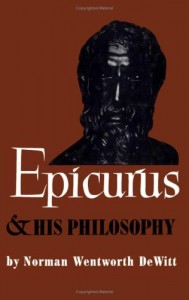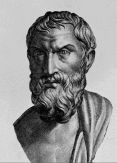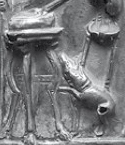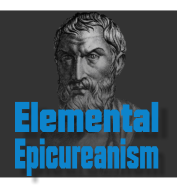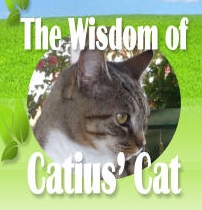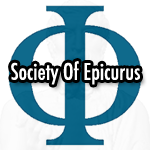Epicurean passages from Seneca must be scrutinized strictly to determine whether Seneca is reporting accurately, or warping an Epicurean doctrine for a Stoic misuse. Below is a passage I first posted about back in 2011 which I now see as very important, but for a different reason than appeared to me at the time. Seneca, and no doubt your normal modern stoic/ascetic philosopher as well, would read this passage as merely a statement that desires should be limited. But now I think it means much more.
Think carefully about what is going on here in these two sentences: “Natural desires are limited; but those which spring from false opinion can have no stopping point. The false has no limits.”
This sounds to me like authentic Epicurean doctrine, but the point is not merely that desires should be restrained. To what larger and much more important issue does it point? It points to the emphasis that Epicurus placed on dealing with the anti-Epicurean complaint that any true guide to life must have “limits.” In other words, nothing that is unlimited is “true” – only things for which there can be a limit can be considered as “true.”
So what is the significance of that? Recall that the great and overriding issue in Epicurean philosophy, and the reason for the wars against it by religions and other philosophies, is that Epicurus asserted that pleasure is the goal of life. Opponents of pleasure allege that this cannot be the case because pleasure has no limit, and that the desires are unlimited, they can never be satisfied, and thus they are an unsatisfactory guide to life (see Plato’s Philebus for development of this argument). The observation that the false has no limits indicates that Epicurus understood this Platonic argument and saw the importance of refuting it.
And thus we have the third most important doctrine in the Principal Doctrines of Epicurus:
3. The magnitude of pleasure reaches its limit in the removal of all pain. When such pleasure is present, so long as it is uninterrupted, there is no pain either of body or of mind or of both together.
This doctrine is not a simple statement that “what is good is easy to get,” despite what those who read the Tetrapharmakon superficially constantly argue. Doctrine three is the absolutely essential basis for the observation that pleasure is a natural desire; that the opinion that pleasure is the guide of life is true because pleasure has a stopping point; that pleasure is a true guide because it has a limit.
The importance of keeping this point in mind is hard to underestimate. Forget it, and you will eventually abandon pleasure and slide toward stoicism and asceticism. Remember it as the key to accepting pleasure as the guide of life, and it unlocks the door to understanding how the removal of all pain from life – the point at which ordinary pleasures are at their maximum – does not mean asceticism at all. Instead, it is an observation about the nature of ordinary pleasure that is a foundation for the entire Epicurean ethical system. Only by understanding this point can we understand that when Epicurus referred to absence of pain, he was talking not only about the quantitative nature of pleasure as equaling the absence of pain (given that these are the only sensations that the faculty of pain and pleasure can register). Far more importantly, he was making the point that the faculty of Pleasure can be embraced because it can be met and satisfied, which is a requirement for any realistic goal of life.
________________
Here’s the full Seneca quote:
Seneca’s Letters – Book I – Letter XVI: This also is a saying of Epicurus: “If you live according to nature, you will never be poor; if you live according to opinion, you will never be rich.” Nature’s wants are slight; the demands of opinion are boundless. Suppose that the property of many millionaires is heaped up in your possession. Assume that fortune carries you far beyond the limits of a private income, decks you with gold, clothes you in purple, and brings you to such a degree of luxury and wealth that you can bury the earth under your marble floors; that you may not only possess, but tread upon, riches. Add statues, paintings, and whatever any art has devised for the luxury; you will only learn from such things to crave still greater. Natural desires are limited; but those which spring from false opinion can have no stopping point. The false has no limits. When you are traveling on a road, there must be an end; but when astray, your wanderings are limitless. Recall your steps, therefore, from idle things, and when you would know whether that which you seek is based upon a natural or upon a misleading desire, consider whether it can stop at any definite point. If you find, after having traveled far, that there is a more distant goal always in view, you may be sure that this condition is contrary to nature.
















